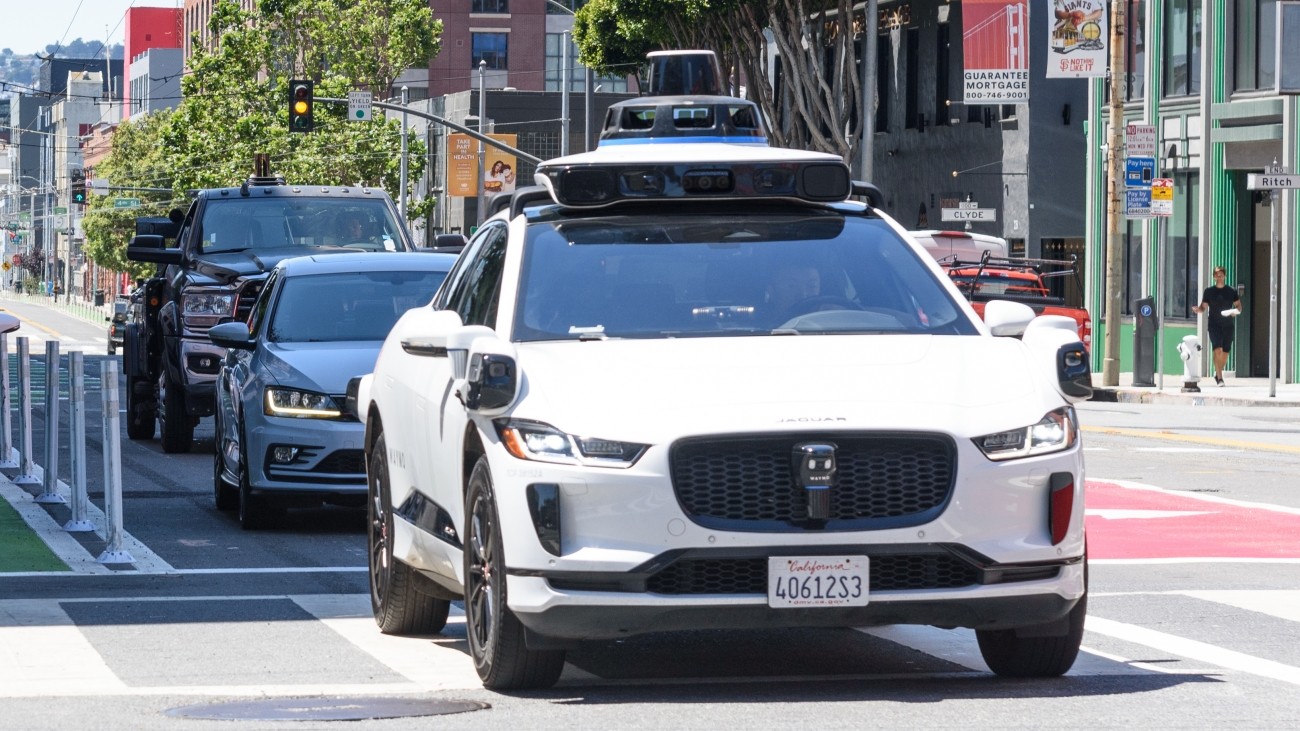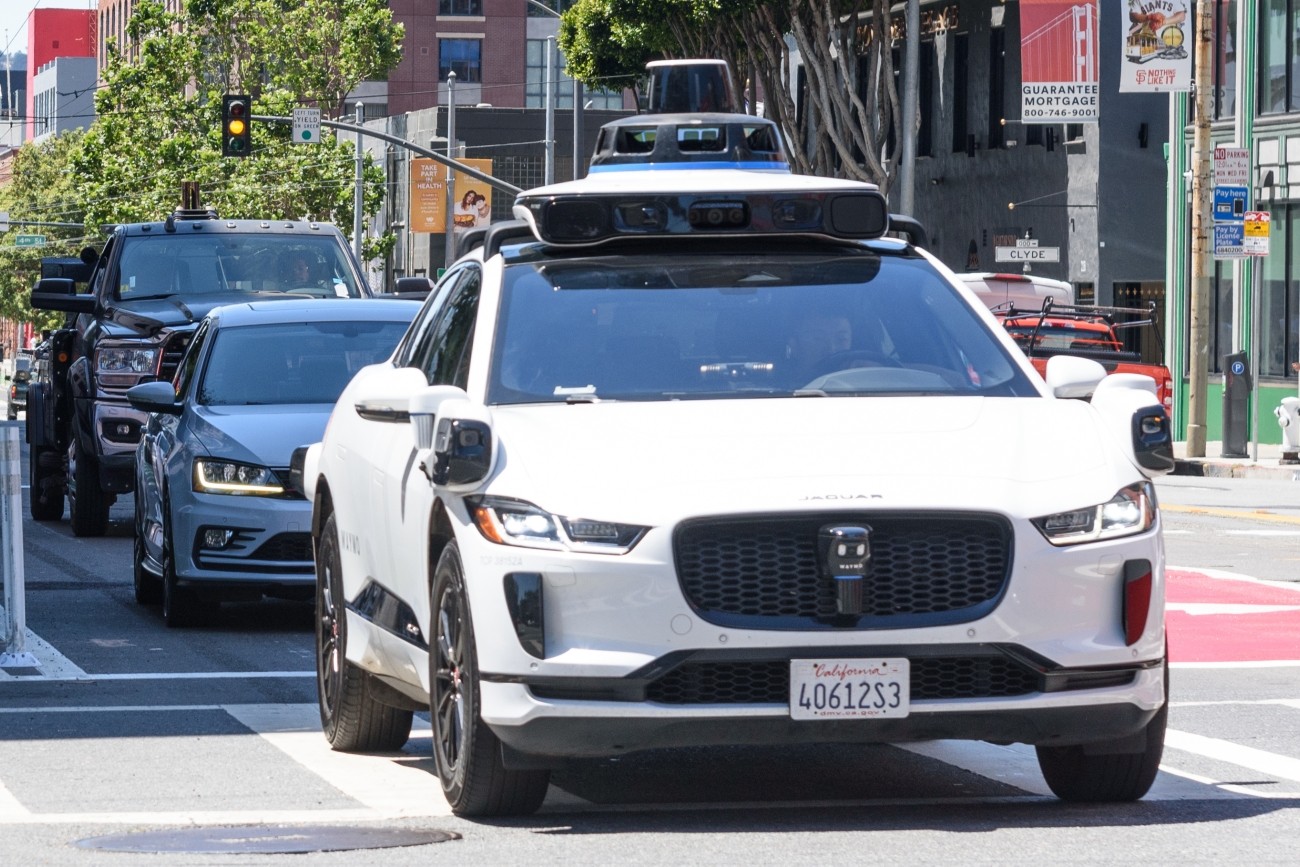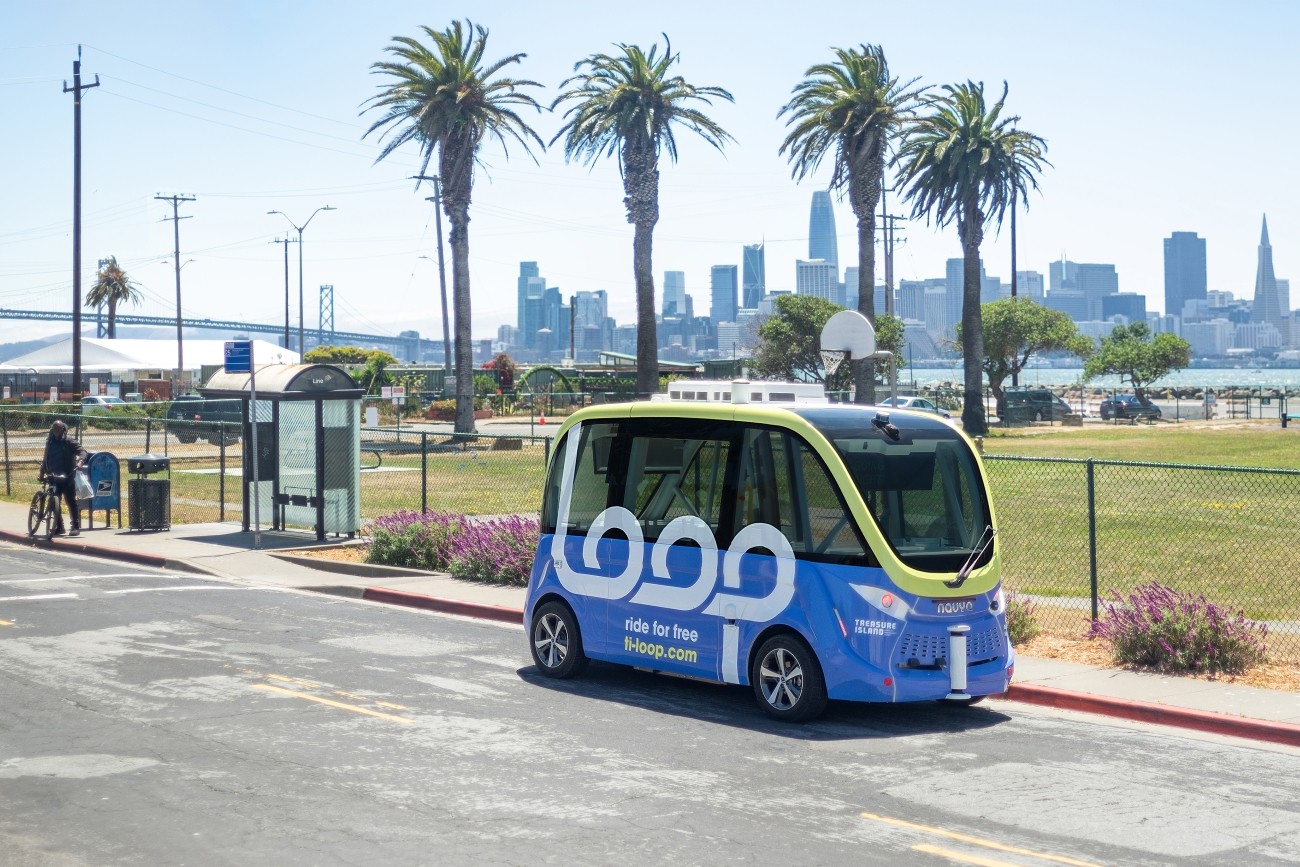
Photo by SFMTA Photography Department
San Francisco is a locus of Autonomous Vehicle (AV) deployment, including being the epicenter of privately operated commercial AV passenger services and the site of our local publicly-led Treasure Island Loop Autonomous Shuttle Pilot.
At the October 24 Transportation Authority Board meeting, staff from the Transportation Authority, SFMTA, and San Francisco Fire Department, presented on the recent on-street experience and current regulatory landscape of driverless AVs in San Francisco. Carnegie Mellon Professor Philip Koopman also provided expert perspectives on autonomous vehicle safety and policy issues. The presentations included discussion on:
- AV Activities: In 2022, there were 7 million driverless AV miles driven in San Francisco, about 0.2% of all miles driven that year in the city. To date, the major AV companies Cruise and Waymo each report having driven about 5 million driverless AV miles, a fraction of the miles needed to be driven to make conclusions about their safety.
- AV Regulations: Several AV companies operate in San Francisco under testing and commercial deployment permits approved by the federal National Highway Traffic Safety Administration (NHTSA), California Department of Motor Vehicles (CA DMV), and California Public Utilities Commission (CPUC). San Francisco has no authority to regulate AV operations and has consistently advocated for an incremental, performance-based approach to permitting AV companies. Despite San Francisco’s input, including concerns of San Francisco first responders, the CPUC approved the expansion of Cruise and Waymo driverless AV permits in August. Although AVs show many good driving practices, including critical compliance with posted speed limits, AVs don’t always comply with the rules of the road and have exhibited concerning conflicts and malfunctions. Subsequently, the CA DMV and CPUC suspended Cruise’s AV permits following a series of serious incidents and injury crashes.
- Data Reporting Requirements: AV companies are required to provide a patchwork of reports at the state and federal levels, with a focus on crashes but with different definitions, geographies, and timescales that make it difficult to assess their performance. Interference with emergency response, incursions into construction work zones, and conflicts with traffic and transit services are not required to be reported, nor are unplanned stops and malfunctions. In fact, the CA DMV only requires reporting by AVs during testing and not during deployment. San Francisco maintains a database of AV incidents collected from 9-1-1, 3-1-1, and social media tags. More robust data collection and ongoing research is needed to facilitate a full picture of AV safety and performance.
AV companies have tremendous potential to improve traffic safety and access, however, benefits will accrue only after AVs are safe, reliable, and trusted. We advocate for a “safe systems approach” by all regulators and for permitting to be performance-based. Moreover, driverless AV technology that is currently self-certified at the federal and state level should be subject to testing and/or audits, and be enforceable under the state vehicle code. To help realize the potential of this transformative technology, we will continue collaborating with public agencies, regulatory bodies, industry, academia, and the public to mature the policy framework governing AV operations on our streets and beyond.

